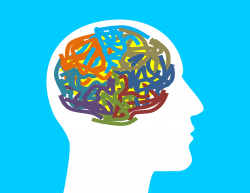

There has been a significant rise in mental health problems among young people, with experts warning of a growing crisis. This includes increased rates of anxiety, depression, and self-harm.
Young people are facing a range of unprecedented challenges, including the impacts of the COVID-19 pandemic, employment, climate change anxiety, and social media pressures. These factors are contributing to the deterioration of their mental health.
There is an urgent need to address these driving factors and improve mental health treatments to stymie rates of premature death, disability and lost potential which research from the Lancet Psychiatry Commission on youth mental health has shown to have escalated over the past two decades.
Published on Wednesday, the work was led by the executive director of Australia’s Orygen Centre of Excellence in Youth Mental Health, psychiatrist prof Patrick McGorry, who said “this is the most serious public health problem we’ve got”.
While mental ill-health accounts for at least 45% of the overall burden of disease in people aged 10 to 24, only 2% of global health budgets are devoted to mental healthcare, the report found.
McGorry said that in many countries, the median price of a house is several times the average annual salary. In addition, poorly regulated social media and digital platforms, which drive political polarisation, are leaving young people feeling increasingly isolated.
Social media plays a key role in exacerbating mental health issues. Constant exposure to idealised images and online bullying are significant stressors for young people.
The pandemic has also had a profound impact on young people’s mental health. Lockdowns, social isolation, and disruptions to education have all contributed to increased stress and anxiety.
Growing concerns about climate change and the future of the planet are also affecting young people’s mental well-being. Many feel a sense of helplessness and fear about the future.
In low-income and middle-income countries, the level of unmet need for mental health services can reach near 100%, World Health Organization (WHO) spokesperson Carla Drysdale said.
“All countries, no matter the resource constraints, can take steps to improve mental health prevention and care for young people,” she said. Building a non-specialist workforce that includes school counsellors, community-based workers and peers is crucial.
Denborough is a clinical director of headspace in Australia, a free or low-cost service for young people aged 12 to 25 who note the importance of recognising the multiple stressors young people face and address the root causes of that distress, rather than automatically labelling young people with a mental illness.
“The inequality, the lack of affordable housing, the insecure employment and the policies that drive those are often the root cause,” he said.
“If society is not running that intergenerational fairness lens over what they’re doing and addressing the causes, then you’re just Band-Aiding the problem.”
For more information on this subject, see: